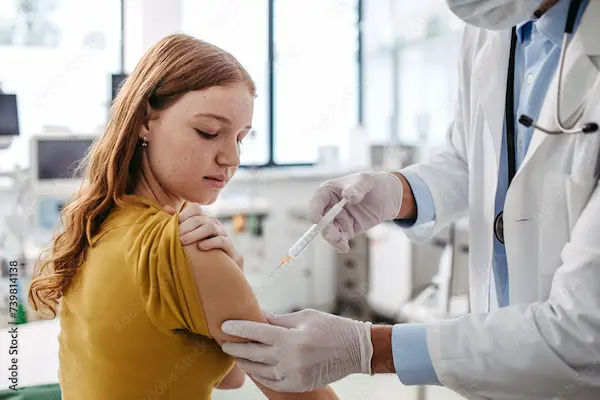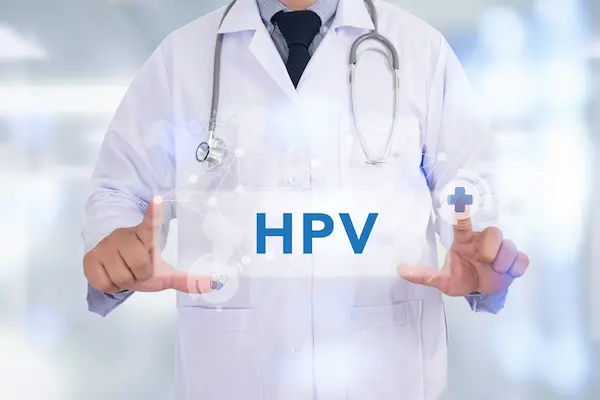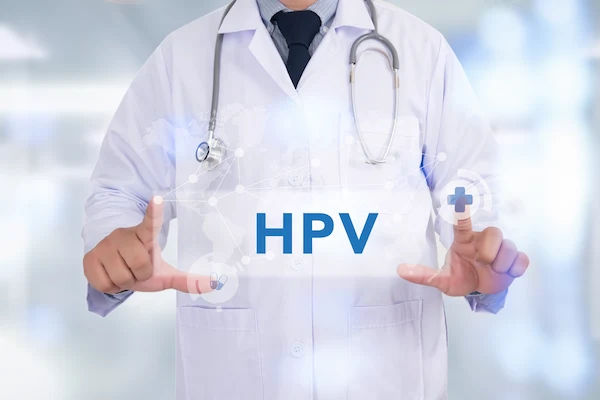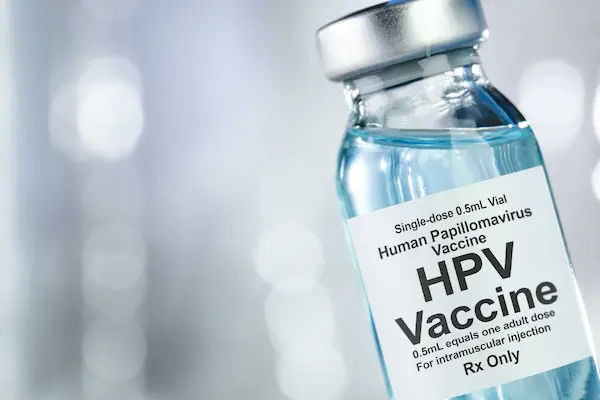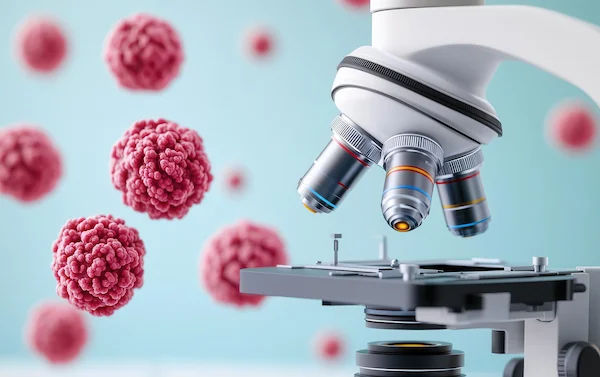What Leads To Signs Of Human Papillomavirus
Learn about the causes and signs of Human Papillomavirus (HPV), its symptoms, risk factors, and complications. Understand the importance of early diagnosis and prevention.

Written by Dr. Vasanthasree Nair
Reviewed by Dr. Rohinipriyanka Pondugula MBBS
Last updated on 13th Jan, 2026

Introduction
Human papillomavirus, or HPV, is the most common sexually transmitted infection (STI) globally. If you're sexually active, you've likely been exposed to some form of it. The tricky part? It’s a master of stealth. Most people with HPV never develop any signs of human papillomavirus or health problems, and their immune system clears the infection naturally within two years. However, when the virus persists, it can lead to noticeable symptoms like warts or, more seriously, cancer. This article will guide you through the often-hidden world of HPV, helping you understand what to look for, how it's transmitted, and, most importantly, how to protect yourself. We'll break down the symptoms in both men and women and emphasize the life-saving importance of vaccination and regular screening.
The Two Main Categories: Low-Risk vs. High-Risk HPV
Doctors categorize HPV strains based on their cancer risk:
Low-risk HPV: These types (e.g., HPV 6 and 11) do not cause cancer but are responsible for almost all cases of genital warts. They are considered "low-risk" because they are not associated with cancerous cell changes.
High-risk HPV: These types (e.g., HPV 16 and 18) can lead to cancer if the immune system fails to clear the infection. A persistent infection with a high-risk strain can cause normal cells to become abnormal and eventually cancerous over many years.
Consult Top Specialists for Personalised Tips
How Common is HPV? The Statistics
The prevalence of HPV is staggering. Nearly all sexually active men and women get it at some point in their lives. According to the Centers for Disease Control and Prevention (CDC), there were about 43 million HPV infections in the US in 2018, many among people in their late teens and early 20s. This high prevalence underscores why understanding the signs of human papillomavirus is a public health priority.
The Most Common Sign: Genital Warts
For low-risk HPV infections, the primary and often only visible symptom is the development of genital warts. It's important to note that the strains that cause common warts on hands and feet are different from those that cause genital warts.
What Do Genital Warts Look and Feel Like?
Genital warts can vary greatly in appearance. They may be:
Small, flesh-colored, or gray swellings in the genital area.
Bumps that have a cauliflower-like texture.
Raised or flat, single or multiple, small or large.
Sometimes itchy, but often they cause no physical discomfort at all.
Where Do Genital Warts Typically Appear?
In women, they can appear on the vulva, the walls of the vagina, the area between the external genitals and the anus, the cervix, and the anus. In men, they can be found on the tip or shaft of the penis, the scrotum, or the anus. They can also develop in the mouth or throat of a person who has had oral sexual contact with an infected person.
Are Genital Warts Dangerous?
While the warts themselves are caused by low-risk HPV and are not cancerous, their presence indicates an HPV infection. They can cause emotional distress and sometimes physical discomfort. If you notice any unusual bumps or growths, it's crucial to get them checked by a healthcare professional. You can consult a dermatologist or gynecologist online with Apollo24|7 for a preliminary assessment and to discuss the next steps.
The Silent Threat: Signs of High-Risk HPV
This is the most dangerous aspect of HPV. High-risk HPV has no visible symptoms until it has caused significant cell changes that lead to cancer. This is why it's called a "silent" infection.
The Link Between HPV and Cancer
Persistent infection with high-risk HPV can lead to cancer in various parts of the body. According to the WHO, HPV is responsible for:
Nearly all cases of cervical cancer.
A majority of anal cancers.
A significant proportion of cancers of the vagina, vulva, penis, and oropharynx (the back of the throat, including the base of the tongue and tonsils).
Pre-Cancerous Cell Changes: What Screening Detects
Before cancer develops, cells undergo pre-cancerous changes, known as dysplasia. These changes are not felt by the patient. They are only detectable through medical screening. For cervical cancer, this is the purpose of the Pap smear (which looks for abnormal cells) and the HPV test (which looks for the DNA of high-risk viruses). Catching and treating these cell changes early prevents cancer from developing.
Symptoms of HPV-Related Cancers (Cervical, etc.)
Symptoms only appear when pre-cancer has progressed to invasive cancer. Symptoms of cervical cancer may include:
Irregular bleeding between periods or after menopause.
Bleeding after sexual intercourse.
Unusual vaginal discharge (may be watery, pink, or foul-smelling).
Pelvic pain or pain during sex.
If you experience any of these symptoms, it is essential to see a doctor immediately for evaluation. You can book a physical visit to a gynecologist with Apollo24|7 to get a comprehensive check-up.
HPV Symptoms in Men
Men are often asymptomatic carriers of HPV, meaning they can transmit the virus without ever knowing they have it.
Often Asymptomatic Carriers
Most men who contract HPV never develop symptoms, and the infection usually clears on its own without causing any health issues. This lack of visible signs of human papillomavirus is a primary reason for its widespread transmission.
Signs of HPV-Related Cancers in Men (Throat, Penile, Anal)
When high-risk HPV persists and causes cancer in men, symptoms depend on the cancer type:
Oropharyngeal Cancer: A persistent sore throat, ear pain, hoarseness, a lump in the neck, painful or difficult swallowing, or an unexplained weight loss.
Penile Cancer: Changes in color or thickness of the skin on the penis, a painful sore or lump on the penis, or unexplained bleeding.
Anal Cancer: Anal bleeding, pain, itching, discharge, or swollen lymph nodes in the anal or groin area.
Any persistent symptom should be evaluated by a doctor.
Conclusion
Understanding the signs of human papillomavirus is less about looking for obvious symptoms and more about embracing proactive healthcare. The virus's ability to lie dormant for years means that vigilance through vaccination and screening is our most powerful weapon. The HPV vaccine, recommended for preteens and adults up to age 45, is a safe and effective way to prevent the majority of HPV-related cancers and genital warts. For women, adhering to a schedule of Pap smears and HPV tests as recommended by your doctor is non-negotiable for cervical health. Remember, an abnormal test result is not a diagnosis of cancer; it's an early warning system that allows for intervention long before cancer develops. Take charge of your health, talk to your doctor about vaccination and ensure you are up to date on your screenings.
Consult Top Specialists
Consult Top Specialists for Personalised Tips

Dr. Rajib Ghose
General Physician/ Internal Medicine Specialist
25 Years • MBBS
East Midnapore
VIVEKANANDA SEBA SADAN, East Midnapore

Dr. Swagato Podder
General Practitioner
5 Years • MBBS
Kolkata
GRD POLYCLINIC, Kolkata

Dr. Moumita Roy
General Physician/ Internal Medicine Specialist
8 Years • MBBS , MD (Anesthesiology)
Kolkata
VDC Clinic, Kolkata

Dr. Arif Ahmed
General Physician/ Internal Medicine Specialist
9 Years • MBBS, MD (Genl. Med.)
Kolkata
MCR SUPER SPECIALITY POLY CLINIC & PATHOLOGY, Kolkata

Dr Aakash Andgi
General Physician/ Internal Medicine Specialist
9 Years • MBBS MD
Bengaluru
Apollo Clinic, JP nagar, Bengaluru
Consult Top Specialists

Dr. Rajib Ghose
General Physician/ Internal Medicine Specialist
25 Years • MBBS
East Midnapore
VIVEKANANDA SEBA SADAN, East Midnapore

Dr. Swagato Podder
General Practitioner
5 Years • MBBS
Kolkata
GRD POLYCLINIC, Kolkata

Dr. Moumita Roy
General Physician/ Internal Medicine Specialist
8 Years • MBBS , MD (Anesthesiology)
Kolkata
VDC Clinic, Kolkata

Dr. Arif Ahmed
General Physician/ Internal Medicine Specialist
9 Years • MBBS, MD (Genl. Med.)
Kolkata
MCR SUPER SPECIALITY POLY CLINIC & PATHOLOGY, Kolkata

Dr Aakash Andgi
General Physician/ Internal Medicine Specialist
9 Years • MBBS MD
Bengaluru
Apollo Clinic, JP nagar, Bengaluru
More articles from HPV infection
Frequently Asked Questions
Can you get tested for HPV if you're a man?
There is currently no FDA-approved test to diagnose HPV in men. Diagnosis often occurs only if warts appear or if a cancer (like throat cancer) is diagnosed and tested for HPV DNA. Some specialized clinics may offer anal Pap tests for high-risk individuals, but this is not standard.
If I have genital warts, does that mean I'm at risk for cancer?
No. The strains of HPV that cause genital warts (HPV 6 and 11) are low-risk and are not associated with cancer. However, it is possible to be infected with multiple HPV types simultaneously, so having warts doesn't rule out a co-infection with a high-risk strain.
Is HPV curable?
There is no cure for the virus itself. However, the body's immune system can usually clear the HPV infection naturally within one to two years. Treatment is available for the health problems HPV causes, such as wart removal procedures and treatment for pre-cancerous cell changes.
How can I protect my partner if I have HPV?
If you have an active infection (like warts), using condoms can help reduce the risk of transmission, though they are not 100% effective as HPV can infect areas not covered by a condom. The best overall protection is ensuring your partner is vaccinated against HPV. Open communication with your partner is also key.
I'm over 26. Can I still get the HPV vaccine?
Yes. The FDA has approved the HPV vaccine for adults up to age 45. If you are between 27 and 45, discuss with your doctor whether vaccination is right for you. It may not be as effective if you've already been exposed to some HPV strains, but it can still protect against strains you haven't encountered.
